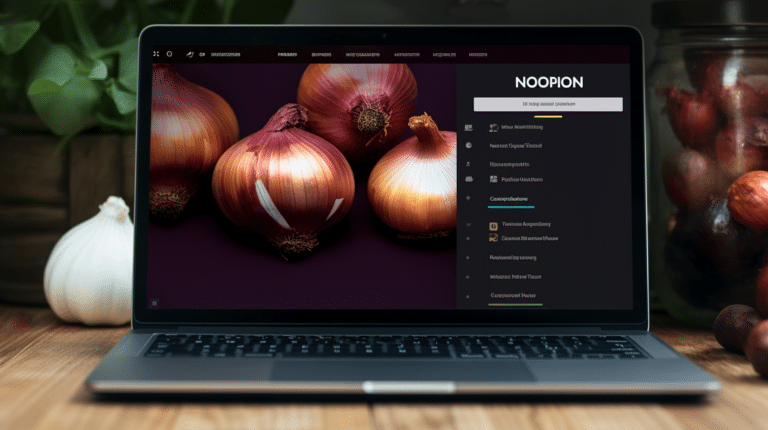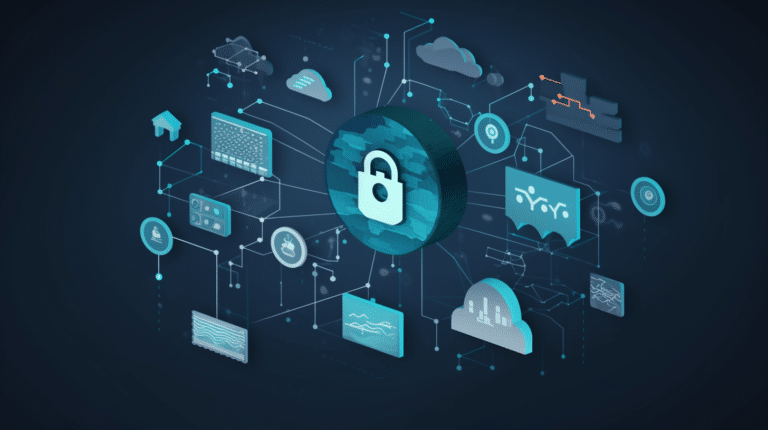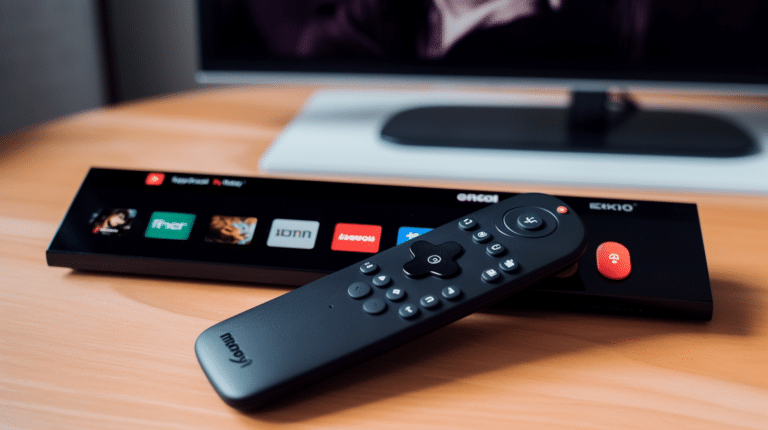With the growing concerns about online privacy and security, many people have turned to VPNs (Virtual Private Networks) to safeguard their browsing habits and maintain anonymity. A VPN creates a secure, encrypted tunnel between your device and a VPN server, masking your IP address and preventing third parties from monitoring your online activities. While VPNs provide numerous benefits like bypassing geo-restrictions and safeguarding sensitive information, one common concern is whether using a VPN consumes additional data.
It is essential to understand that using a VPN does, in fact, use extra data due to the encryption process. While the increase in data usage depends on the VPN protocol used, it generally falls within a range of 5-15%. This might not be significant for unlimited data plans or Wi-Fi networks but can impact those with strict data caps on their internet connections, especially on mobile devices.
Key Takeaways
- VPNs use additional data due to the encryption process, usually between 5-15% more
- The amount of extra data used depends on the VPN protocol implemented
- This additional data usage may impact those with strict data caps or on limited mobile data plans
Basic Understanding of a VPN
A VPN, or Virtual Private Network, is a technology that provides a secure and private connection for users to access the internet. It works by creating an encrypted tunnel between your device and a VPN server. This encrypted tunnel ensures that your data is safe from prying eyes and unauthorized access.
When you connect to a VPN, your network traffic is routed through the VPN server, which acts as an intermediary between your device and the internet. This effectively hides your IP address and makes it seem like you are accessing the internet from the location of the VPN server. This can provide additional security and privacy, as well as help you bypass geographical restrictions and censorship.
One of the key components of a VPN is encryption. Encryption is the process of converting data into a code to prevent unauthorized access. When your data is sent through the VPN tunnel, it is encrypted using a VPN protocol, such as OpenVPN or IKEv2. This ensures that even if someone were to intercept the data, they would not be able to read or access it without the decryption keys.
Another aspect of VPNs is the choice of servers. A VPN provider will typically offer a multitude of servers located in different countries around the world. This allows users to choose the server that best suits their needs, depending on factors like security, privacy, speed, or bypassing geographical restrictions.
In summary, a VPN is a powerful tool for enhancing your online security and privacy. It achieves this through the use of encryption, VPN protocols, and an extensive network of servers. By utilizing a VPN, you can protect your data, hide your IP address, and enjoy a more secure and private internet experience.
Data Usage in VPNs
Using a VPN indeed consumes data as it creates an encrypted tunnel between your device and the VPN server. When connected to a VPN, the data you send and receive is encrypted, which adds some overhead to your overall data usage. Generally, the additional data consumption ranges between 5-15% due to the encryption process1.
VPNs can work on both Wi-Fi and cellular data connections. However, if you have a limited data plan, it is essential to be mindful of the extra data usage caused by the VPN encryption overhead2.
The actual data usage depends on several factors, like the VPN protocol used, the level of encryption, and the server location. Different VPN protocols have varying levels of encryption, which can impact the data usage and connection speed. For example, OpenVPN and IKEv2 are known for their strong encryption and high-speed connections3.
Another factor affecting VPN data consumption is the distance between your device and the VPN server. Connecting to a nearby server generally results in lower latency and better performance. On the other hand, connecting to a server far from your location may lead to higher latency and data consumption4.
It’s also worth noting that a VPN can help bypass ISP throttling. ISPs can sometimes slow down your internet connection based on your online activities. By using a VPN, your online data is encrypted, making it harder for ISPs to throttle your bandwidth based on your browsing habits5.
In summary, while a VPN does use data due to the additional encryption overhead, this trade-off is generally acceptable for the enhanced privacy, security, and potential benefits, such as bypassing ISP throttling. Keep in mind the factors affecting data consumption while selecting a suitable VPN protocol and server location to optimize your VPN experience.
VPN Protocols and Data Usage
When it comes to data usage, VPNs indeed consume data. The amount of data used depends on the VPN protocol and encryption level employed by the service. Let’s examine some common VPN protocols and their impact on data usage:
- PPTP (Point-to-Point Tunneling Protocol): is one of the oldest VPN protocols, known for its lower encryption level and faster speeds. Although it’s not the most secure option, it consumes less data compared to other protocols. However, due to security concerns, PPTP is generally not recommended.
- OpenVPN: is a widely popular, open-source protocol that offers strong encryption and adaptability. It can be customized with various encryption ciphers, although data usage may increase when using a higher level of encryption. OpenVPN works well on different types of networks and is considered secure and reliable.
- L2TP/IPsec (Layer 2 Tunneling Protocol with Internet Protocol Security): is another protocol that combines L2TP with IPsec, offering robust encryption. While it’s more secure than PPTP, using L2TP/IPsec may result in higher data usage due to its double encapsulation process and encryption overhead.
- IKEv2/IPsec (Internet Key Exchange version 2 with Internet Protocol Security): is a modern protocol known for its stability and secure connection establishment. It is particularly effective in maintaining a connection while switching between network types, such as from Wi-Fi to cellular data. However, IKEv2/IPsec consumes more data because of its encryption and encapsulation processes.
It’s important to note that the extra data usage caused by VPN protocols typically ranges between 5-15%. This is primarily due to the encryption process, which adds an additional layer of security and privacy to your online activities. Choosing the right VPN protocol depends on your specific needs, such as the desired balance between security and data usage.
Impact of VPN on Internet Speed
A VPN (Virtual Private Network) provides an additional layer of privacy and security to your online activities. However, it’s essential to understand how using a VPN can affect your internet speed as well. Factors such as encryption, server location, and VPN protocols can contribute to variations in speed.
Encryption is a crucial aspect of a VPN’s functionality. By encrypting your data, a VPN protects your information from potential eavesdropping, but it also adds an extra processing step. This additional step can sometimes result in a slight decrease in speed. Usually, higher levels of encryption will have a more significant impact on speed, while lower levels may marginally affect it.
Another vital factor is the location of the VPN server. When you use a VPN, your data travels through the VPN server before reaching its final destination. The further the server is from your physical location, the longer it takes for data packets to travel back and forth between your device and the server, leading to increased latency and reduced speed.
Your chosen VPN protocol can play a role in determining your connection speed, too. A VPN protocol is a set of instructions used to establish the connection between your device and the VPN server. Some common VPN protocols are OpenVPN, L2TP/IPsec, and IKEv2. Each protocol has its pros and cons in terms of security, reliability, and speed. For example, OpenVPN is known for its robust security, while IKEv2 is usually faster but may not be as secure.
In some cases, using a VPN can actually result in faster internet speed. For example, ISP throttling is the practice of limiting your bandwidth when you engage in specific online activities. A VPN can help mask these activities from your ISP, allowing you to avoid throttling and experience smoother internet speeds.
In conclusion, a VPN’s impact on internet speed depends on various factors, including encryption, server location, and the selected VPN protocol. Although there might be a slight reduction in speed, using a VPN can also offer potential benefits, such as bypassing ISP throttling. Maintaining a balance between security and speed can help you get the most out of your VPN experience.
Using VPN on Mobile Devices
Using a VPN on mobile devices, such as Android and iOS smartphones or tablets, can provide many benefits, including increased privacy and security. However, it is important to note that a VPN does use data when connected to a mobile device.
When using a VPN on a mobile device connected to a cellular network, data usage typically increases by 4-20% depending on the chosen protocol. This increase is due to the encryption and encapsulation of data by the VPN, which requires extra data to be transmitted over the cellular data connection 1.
Due to the increased data usage, using a VPN on a mobile device is not a solution for avoiding monthly mobile data caps or obtaining unlimited roaming data. Mobile providers may still charge for data usage when connected to a VPN, even if that usage is primarily due to the encryption and overhead associated with the VPN connection.
When it comes to choosing a VPN for use on mobile devices, it is important to select a reputable provider that offers dedicated apps for Android and iOS platforms. These apps should be easy to use, provide options for selecting the desired protocol, and allow you to quickly connect and disconnect from the VPN server.
In summary, using a VPN on a mobile device can provide numerous benefits in terms of privacy and security. However, it is important to be aware of the increased data usage associated with VPN connections and choose a reliable VPN provider designed for use on mobile platforms.
The Role of VPN in Maintaining Privacy
A Virtual Private Network (VPN) is a technology that helps users maintain privacy and security while browsing the internet. VPNs create an encrypted connection between your device and a VPN server, safeguarding your online activities from prying eyes. This added layer of security is essential for preventing unauthorized access to your sensitive information.
When you use a VPN, your data is encrypted and sent through a secure tunnel to the VPN server. This means that your Internet Service Provider (ISP) or potential hackers cannot view your online activities. The websites and services you access will see the VPN server’s IP address instead of your own, which further enhances your privacy and anonymity.
In addition to providing encryption, VPNs also allow users to connect to servers in different locations. This is helpful for accessing geo-restricted content and adding an extra layer of online privacy by masking your true location. Although a VPN does use data in the process of encrypting and routing your traffic, the benefits it provides, such as security, privacy, and access to restricted content, often outweigh the minimal increase in data usage.
While VPNs offer many advantages, it is essential to select a reputable VPN provider to ensure your data is adequately protected. A trustworthy VPN service will not store logs of your online activities and should offer strong encryption standards to keep your data secure. These factors, along with transparent privacy policies, are crucial in maintaining your privacy when using a VPN.
Lastly, it’s important to recognize that VPNs, while effective in enhancing online privacy and security, are not foolproof. Users should still exercise caution and make use of additional security measures, such as updating software, enabling two-factor authentication, and being aware of phishing attempts, to further protect their data and maintain their anonymity online.
VPN and Content Accessibility
A VPN, or Virtual Private Network, is a tool that enhances the privacy and security of your online activities by encrypting your internet connection and routing it through a secure VPN server. By doing so, it masks your IP address, making it harder for ISPs, governments, or hackers to track your online movements.
One benefit of using a VPN is its ability to improve content accessibility. Streaming services like Netflix and other online platforms often have geographical restrictions, limiting the availability of certain movies, TV shows, and other content based on the user’s location. By connecting to a VPN server located in another country, you can bypass these geographical restrictions and access content that would otherwise be unavailable to you.
However, it’s important to note that VPNs do use data. The process of encrypting and routing your connection consumes extra bandwidth, which could count against data limits on your smartphones or tablets. The amount of data a VPN uses varies depending on the encryption protocol your VPN provider relies on, but it generally falls within the range of 5-15% extra usage source.
When it comes to accessing online content while using a VPN, your download and streaming experience of videos, games, movies, and images should be smooth, provided you choose a reliable and fast VPN provider. Keep in mind that some streaming services, like Netflix, actively try to block VPN users from accessing their content, so it’s crucial to choose a VPN that can consistently bypass these blocks.
In conclusion, using a VPN can help you gain access to a wider range of content while maintaining privacy and security. Just be aware of the extra data usage, and make sure to select a VPN provider that meets your needs in terms of speed and content accessibility.
Understanding Free Vs Premium VPNs
When comparing free VPNs and premium (paid) VPNs, there are some key differences to be aware of. First off, premium VPNs usually offer faster speeds, more robust security features, and higher levels of customer support. On the other hand, free VPNs are often more limited in terms of functionality, speed, and data volume.
- Encryption Levels: One of the major distinctions between free and premium VPNs is their encryption levels. Premium VPNs typically offer 256-bit data encryption, while free VPN services may only provide 128-bit encryption1. This difference in encryption strength can directly impact the security of your online activities.
- Data Limits: Many free VPN services impose data limits or bandwidth caps to control their server traffic. Premium VPN providers, however, generally offer unlimited data usage. This is an important aspect to consider, especially for users who require a VPN for regular, high-volume data transfers.
- Speed: Premium VPNs pride themselves on offering fast and reliable connections, which is crucial for activities like streaming and downloading. Free VPNs often have slower speeds due to their limited server capacity and higher user volume. Consequently, the overall browsing experience may be less satisfying with a free VPN.
- Bandwidth and Server Locations: Premium VPN providers have a significant advantage when it comes to server locations and bandwidth. They maintain extensive networks of servers across the globe, which allows users to access more content and experience better connection speeds. In contrast, free VPN services usually have fewer servers, which can lead to network congestion and slower connections.
- Customer Support: Premium VPNs typically offer better customer support compared to their free counterparts. This is because paid VPN customers are more likely to receive priority access to technical assistance and timely customer service. Free VPN users, on the other hand, may experience longer wait times and less personalized support.
In summary, several factors set premium VPNs apart from free VPN services, including stronger encryption, data volume allowances, connection speed, server location and bandwidth, and customer support. It’s essential to weigh these differences when choosing between a free or premium VPN service.
Impact of VPN on Data Caps
A VPN, or Virtual Private Network, is a tool that provides users with enhanced privacy and security while browsing the internet. However, using a VPN may have an impact on your data caps, as it could increase your data usage. Your data cap refers to the amount of data you can use on your data plan before your Internet Service Provider (ISP) or mobile provider may throttle or limit your speeds. With this in mind, understanding how VPNs affect your data caps is essential.
It’s important to note that a VPN indeed uses data. When you connect to a VPN, the connection process itself may add some overhead of data usage, usually not exceeding a 5-15% range, as explained by NordVPN. This additional data consumption is due to the encryption process that a VPN undertakes to secure your online activities and maintain privacy.
The amount of data used by a VPN may also depend on the encryption protocol that your VPN provider employs. Higher encryption levels may increase the data overhead, as more data is required for the encryption and decryption process. This consideration is particularly important for users with limited data plans or those who frequently use data-consuming services such as video streaming, online gaming, or heavy file downloads.
It’s also worth mentioning that a VPN does not bypass data caps set by your ISP or mobile provider. Since VPNs use data, your service provider can still track your overall data usage, even if they cannot see the specific content being transmitted. Consequently, reaching your data limit while connected to a VPN may still result in throttling or other restrictive measures taken by your provider.
In summary, while VPNs offer multiple benefits in the realm of privacy and security, they can also increase your data usage due to the encryption process. It’s essential to be mindful of data caps and plan usage accordingly, especially when using a VPN for data-heavy activities or frequently connecting through mobile devices.
Security Risks and VPN
VPNs are designed to provide security and privacy while using the internet. They encrypt your online activity, making it harder for hackers, malware, and third parties to spy on your connections. However, there are still some risks associated with using VPNs.
One of the main concerns is the VPN provider itself. Some VPN services may log your internet activity, which can be accessed by government agencies or third parties. It is essential to choose a reliable and trustworthy VPN provider that follows a strict no-logs policy to minimize this risk.
Another risk is the VPN server’s security. If the server is compromised, your encrypted data could be intercepted and decrypted by hackers. To protect against this, ensure that your VPN provider utilizes strong encryption protocols, such as AES-256, and regularly updates their server infrastructure.
Malware is also a potential threat when using VPNs. Some VPN applications might contain malware or be vulnerable to attacks, leading to reduced security and privacy. To avoid this, only download VPN software from trusted sources and keep your antivirus software up-to-date.
While VPNs can help protect your internet activity from spying by hackers and third parties, they do not offer complete anonymity. Skilled hackers could potentially use other methods to track your online behavior, such as exploiting software vulnerabilities or conducting phishing attacks.
To maximize the security benefits of VPNs, it is crucial to practice good online habits alongside using a VPN. This includes keeping your devices updated, using strong passwords, and being aware of common online threats. In addition, remember that a VPN cannot protect your data from all forms of cyber threats, but it serves as a useful tool to enhance your overall online security and privacy.
Frequently Asked Questions
Does a VPN increase data usage?
Yes, a VPN does increase data usage. This is because of the encryption process that adds an extra layer of privacy and security. Data consumption depends on the encryption protocol used by your VPN provider, but typically the extra data used doesn’t exceed the 5-15% range.
How much data does a VPN consume per hour?
The amount of data a VPN consumes per hour varies depending on several factors, such as the type of online activities, the encryption protocol, and the VPN service itself. However, the increase in data usage due to VPN is usually within the 5-15% range as mentioned earlier. To get a better estimate, monitor your data usage while using a VPN.
Does using a VPN slow down internet speed?
Using a VPN can sometimes result in slower internet speed. This is because your internet traffic is rerouted through the VPN server, and the encryption process may add some latency. However, many high-quality VPN services are optimized to minimize the impact on speed.
Can a VPN work on 4G networks?
Yes, a VPN can work on 4G networks. The VPN encrypts and secures your data regardless of the type of network you are connected to, whether it’s Wi-Fi or cellular data like 4G or 5G.
Is 200MB of VPN data sufficient?
The sufficiency of 200MB of VPN data depends on your regular internet usage habits. If your usage mainly includes activities such as browsing and emailing, it may be sufficient. However, if you frequently stream videos, video-call, or download large files, you may quickly exhaust 200MB of data.
Does a VPN affect battery life?
Using a VPN may have an impact on the battery life of your device, mainly because it needs to encrypt and decrypt data continuously. However, modern VPN apps are optimized to minimize the impact on battery life and this effect is likely to be insignificant for most users.





